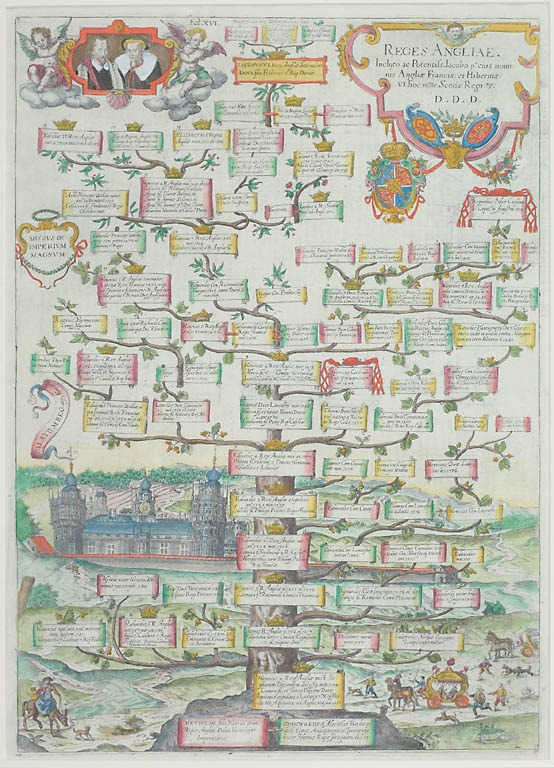Discover Your Lineage
By Wayne Maruna
Of my eight great-grandparents, I only met two: my maternal grandfather’s mother, and my paternal grandmother’s father. I have absolutely no knowledge whatsoever of any of the other six great-grandparents – their names, their origins – nothing. Yet there are many people who can trace their families back many generations. The study of families and the tracing of their lineages and history is referred to as genealogy.
As my computer service activities have taken me from home to home, I’ve become aware of just how many people are actively engaged in genealogical research as evidenced by the presence of genealogy software on their computers. Inasmuch as this topic is one of many I know little to nothing about, I went to the users to see what I could learn.
I surveyed those clients who I could remember having genealogy programs, and I also sent a general survey to the members of the New Bern Computer Users Group. I received back enough information about genealogy to realize I had tapped a topic that was far too big to tackle in a typical Tribune article, so I’m going to have to keep this at a very high level.
Bring up the topic of genealogy at any gathering and it seems everyone has a story to tell about some ancestor who was attaché to Gen. Lee at Appomattox, was married to someone who attended the Continental Congress, was footman to some famous English noble, or was reputed to have died at the hands of Vlad the Impaler. I was amazed to find out that there is a National Genealogical Society, a North Carolina Genealogical Society, and yes, even a Craven County Genealogical Society.
Computers and the Internet
Personal Computers have provided a major boost to genealogical research. Needless to say, the advent of the internet and search engines like Google have allowed people to do research with the click of a button that otherwise would have involved distant trips, dusty records bins, and soirées through graveyards. Such things have not gone away, and are in fact often melded into vacations tied into ancestral research.
Though some people still prefer to keep their findings on paper in binders stacked on shelves, most people now opt for computer software programs that help with record keeping and lineage flow charts. Applications that seem favored with local users include Family Tree Maker, Personal Ancestry File (offered free by the LDS church), Legacy, and Roots Magic. Ancestry.com, a subscription service, also provides an on-line application that comes with access to its over 7 billion records, but the cost is significant at $155 per year for U.S. records access and $300 per year for access to its world-wide database. There are countless other alternatives as well.

The Church of Jesus Christ of Latter Day Saints (LDS) is renowned for its free genealogical data base. In fact, I learned that much info can be gathered locally at the Family History Center at the LDS church here in New Bern. To learn how to access online records and to better understand why the LDS is involved in genealogy, you can check out their website at: http://tinyurl.com/8xnl4sm
A Family Heirloom
Genealogy has been said to be about connecting people. That seems to be true as well when it comes to how people get started in it. I heard from so many people who said they got involved because information was passed to them by their father, or they had a childhood fascination with an aunt’s collection of family records. When asked what they planned to do with their own records, most said they planned to give them to a son or daughter in the hopes that the history would live on.
Many people find that retirement provides them with the
available time to immerse themselves into their research. As one person said,
“It’s like a black hole. You go to look for one thing, and you look up and five
hours have passed.” As to why they stay with it, one person said “It is
fascinating and frustrating and such a ‘high’ when you make an important
discovery.” Similarly, a lady who admitted to the occasional all-night research
binge said she enjoyed “the thrill of the chase and the joy of finding that
needle in a haystack.” Yet another person added, “I love playing detective.
Also, the dead don’t talk back!”
Getting Started
Thinking about getting involved in genealogy? You may wish to make inquiries in the Kellenberger Room at the local New Bern library where Victor Jones works as Special Collections Librarian. Mr. Jones is current president of the North Carolina Genealogical Society. Also, the Craven County Genealogical Society meets the second Tuesday of every month (except July and August) at the LDS church at 1207 Forest Drive off Trent Road. Periodically they hold classes for beginners. You will find the CCGS website at http://www.cravengenealogy.org/ . Tabernians Kathie Bogue and Gerri Moore are both active with the CCGS and would be willing to answer any questions. You can find their contact info in the Taberna directory.
Most advice I have received for people just starting out
begins with the instruction to first talk with all the family members you can,
especially the most senior family members. Don’t restrict yourself to the
internet, but take the time to delve into public records (Census, Birth and
Death, Marriage, Land Transfers, Wills, Divorces). Don’t wait until you’re
buried in paper to select a software program.
You can’t involve yourself in genealogy without getting
immersed in history, which is something we have plenty of in New Bern. Who
knows, you may find you had a relative who was a Duke, which might prove
devastating for a Tarheels fan.